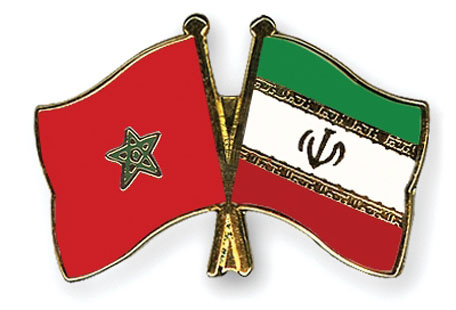Planting Wind, Harvesting a Storm

IRD: Why did not Iran-Morocco relations develop after the Islamic revolution?
JQ: Iran-Morocco relations developed for a period after the Revolution. But overall, I can say that Iran does not have as close relations with Morocco as those with some other Arab countries. The reason should be viewed in the worries of the conservative Arab regimes in the early years of the Islamic Revolution.
The other reason for the non-development of the relations with conservative states was the Iran-Iraq war and concerns about Saddam Hussein’s expansionist approach. In addition, the attempts of the Arab world spearheaded by Saudi Arabia and Egypt-- trying to illustrate the Iran-Iraq war as a Persian-Arab war-- caused the Arab regimes, especially the more conservative ones afraid of Saddam Hussein and affected by the Saudi Kingdom or Egypt, to stand with the Iraqi regime and distance themselves from Iran.
The third issue to be mentioned is the role of Saudi Arabia as an influential country in the Arab world, particularly among those with monarchies. Although Saudi Arabia is a neighbor of Iran and seemingly sought to have friendly relations with Iran, it always has been a rival, using all its levers to isolate Iran. One of these policies was stifling Iran’s approach towards Arab countries.
The geographical distance and a lack of common interests between the two countries is another cause. Even before the Revolution, Iran and Morocco did not have many economic relationships and the personal interest of two kings was the only factor that drove the relations forward.
IRD: Why are our relations with Arab countries in a poor situation despite efforts by the Reformist government to resolve tensions and improve relations?
JQ: During Khatami’s presidency, mutual interest upgraded Iran’s interest section in Rabat into an embassy, but in the time of President Ahamdinejad, Morocco has suspended relations with Iran.
IRD: What was the real cause of this suspension?
JQ: I cannot give you an exact cause. As you know, the pretext to suspend the relations was Iran’s relations with opposition parties, the promotion of Shi’ism and a diplomatic agenda followed in guise of cultural activities. It was not only with Morocco that Iran has strained ties; we face many challenges in our relations with Saudi Arabia. This is the wind Ahmadinejad’s administration planted and now we are harvesting the storm. Iran-Saudi relations have never been this tense, even during the Iran-Iraq war when Iraq received a large portion of its financial aid from Saudi Arabia and Kuwait.
We should cast aside conspiracy theories sometimes and take a critical look at our own conduct. In my opinion, the “Revolution Export” policies of the Ninth and Tenth administrations posed many challenges in relations with Saudi Arabia, Morocco, and some other countries.
IRD: Why did Morocco stand with Saudi Arabia in the recent Iran-Saudi conflict, while no other Arab country adopted a position against Iran with regard to the alleged assassination plot involving the Saudi ambassador?
JQ: Saudi Arabia had sustained relations with Iran, despite the tensions it had during Ahmadinejad’s administrations. At the beginning of Ahmadinejad’s presidency, the Supreme Leader sent former Foreign Minister Ali-Akbar Velayati to Riyadh to assure the Saudis that Tehran’s policies towards them would not change. Hashemi Rafsanjani had cordial, reliable relations with King Abdullah, but the Saudis are now upset with the relationship.
At this point, the countries that do not have any common interests with Iran-- such as Morocco or Bin Ali’s Tunisia-- react towards the tensions between Iran and Saudi Arabia. The Saudis send their ‘infantries’ to fight Iran before they get to the business themselves.
IRD: Do these positions adopted by Morocco and its other current policies facilitate its joining the [Persian] Gulf Cooperation Council?

